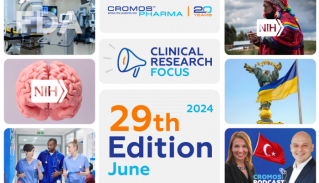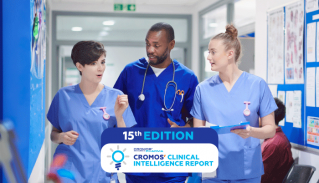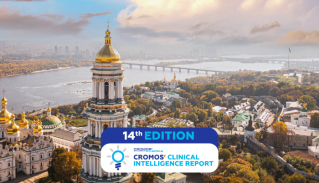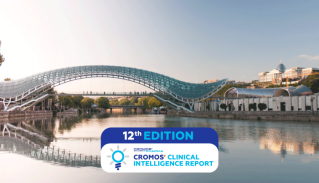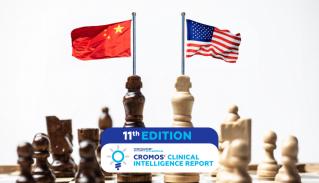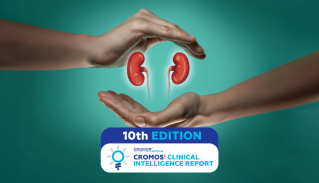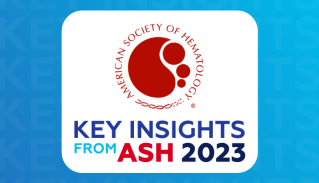
Clinical Research Focus. 17th Edition
The Pros and Cons of the FDAs Real-Time Oncology Review Program
The FDA’s Real-Time Oncology Review (RTOR) is a novel program designed to expedite the review of new cancer therapies. Since its inception the program has gained considerable attention among biotech professionals, especially those working in the field of oncology.
Under the RTOR program, the FDA accepts data from clinical trials in real-time and evaluates them as they become available. The program aims to accelerate the review process for new cancer therapies by allowing the FDA to review data more quickly and provide feedback to drug developers during the clinical trial process. The pros of RTOR is in its potential to reduce the time and cost of drug development, while increasing the speed of patient access to new treatments. Some potential drawbacks include increased workload, limited access, potential misinterpretation of data, and lack of predictability.
Please follow the link to learn more.
A Deep Learning Algorithm to Predict Risk of Pancreatic Cancer Occurrence
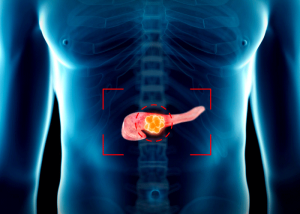 Pancreatic cancer is an aggressive disease with poor outcomes, emphasizing the importance of early detection. The study used AI methods on clinical data from 6 million Danish patients and 3 million US patients to predict cancer occurrence. The best-performing model achieved an AUROC of 0.88 for cancer occurrence within 36 months, dropping to 0.83 when excluding events within 3 months before diagnosis. The relative risk for the highest-risk patients over 50 years old was estimated at 59. Applying the Danish model to US data initially had lower performance (AUROC = 0.71), but retraining improved it (AUROC = 0.78, AUROC (3m) = 0.76). These findings aid in designing surveillance programs for high-risk patients, potentially benefiting lifespan and quality of life through early detection of this aggressive cancer.
Pancreatic cancer is an aggressive disease with poor outcomes, emphasizing the importance of early detection. The study used AI methods on clinical data from 6 million Danish patients and 3 million US patients to predict cancer occurrence. The best-performing model achieved an AUROC of 0.88 for cancer occurrence within 36 months, dropping to 0.83 when excluding events within 3 months before diagnosis. The relative risk for the highest-risk patients over 50 years old was estimated at 59. Applying the Danish model to US data initially had lower performance (AUROC = 0.71), but retraining improved it (AUROC = 0.78, AUROC (3m) = 0.76). These findings aid in designing surveillance programs for high-risk patients, potentially benefiting lifespan and quality of life through early detection of this aggressive cancer.
Please follow the link to learn more.
First-In-Human Trial of Oral Drug to Remove Radioactive Contamination Begins
 The National Institute of Allergy and Infectious Diseases (NIAID) has initiated a first-in-human clinical trial for an experimental oral drug designed to augment radioactive decontamination. The trial aims to evaluate the safety and tolerability of escalating doses of the investigational drug, HOPO 14-1, in healthy adults. The Phase 1 trial, sponsored by SRI International and funded by NIAID, will assess the drug’s efficacy in removing radioactive elements, including plutonium, americium, curium, uranium, and neptunium. Unlike existing intravenous treatments, HOPO 14-1 is formulated as an oral capsule, making it more convenient for emergency situations. The study is being conducted in Plymouth, Michigan, and is expected to yield results in 2024.
The National Institute of Allergy and Infectious Diseases (NIAID) has initiated a first-in-human clinical trial for an experimental oral drug designed to augment radioactive decontamination. The trial aims to evaluate the safety and tolerability of escalating doses of the investigational drug, HOPO 14-1, in healthy adults. The Phase 1 trial, sponsored by SRI International and funded by NIAID, will assess the drug’s efficacy in removing radioactive elements, including plutonium, americium, curium, uranium, and neptunium. Unlike existing intravenous treatments, HOPO 14-1 is formulated as an oral capsule, making it more convenient for emergency situations. The study is being conducted in Plymouth, Michigan, and is expected to yield results in 2024.
Please follow the link to learn more.
FDA Approves First Respiratory Syncytial Virus (RSV) Vaccine
 The FDA has approved Arexvy as the first vaccine for respiratory syncytial virus (RSV) in the United States. It is specifically intended for individuals aged 60 and older to prevent lower respiratory tract disease caused by RSV. RSV is a highly contagious virus that can cause severe illness in older adults. Each year, RSV leads to a significant number of hospitalizations and deaths among older adults in the U.S. The vaccine showed effectiveness in reducing the risk of RSV-associated disease in clinical trials. Common side effects include injection site pain and fatigue. The FDA has requested a post marketing study to assess potential risks. This approach is in line with the FDA’s commitment to developing safe and effective vaccines.
The FDA has approved Arexvy as the first vaccine for respiratory syncytial virus (RSV) in the United States. It is specifically intended for individuals aged 60 and older to prevent lower respiratory tract disease caused by RSV. RSV is a highly contagious virus that can cause severe illness in older adults. Each year, RSV leads to a significant number of hospitalizations and deaths among older adults in the U.S. The vaccine showed effectiveness in reducing the risk of RSV-associated disease in clinical trials. Common side effects include injection site pain and fatigue. The FDA has requested a post marketing study to assess potential risks. This approach is in line with the FDA’s commitment to developing safe and effective vaccines.
Please follow the link to learn more.
NICE Draft Guidance Recommends New Treatment for Chronic Heart Failure
 The UK’s National Institute for Health and Care Excellence (NICE) has approved dapagliflozin, also known as Forxiga, as a treatment for people with symptomatic chronic heart failure. This type of heart failure occurs when the left side of the heart cannot effectively pump the incoming blood. Dapagliflozin, when added to standard care, has shown to reduce the risk of cardiovascular-related death and the need for hospitalization due to heart failure. This is the first NICE-recommended treatment for this condition, benefiting up to 150,000 eligible individuals in England. The availability of this treatment has the potential to improve patients’ quality of life, reduce healthcare costs, and alleviate the burden on the NHS caused by heart failure-related hospitalizations.
The UK’s National Institute for Health and Care Excellence (NICE) has approved dapagliflozin, also known as Forxiga, as a treatment for people with symptomatic chronic heart failure. This type of heart failure occurs when the left side of the heart cannot effectively pump the incoming blood. Dapagliflozin, when added to standard care, has shown to reduce the risk of cardiovascular-related death and the need for hospitalization due to heart failure. This is the first NICE-recommended treatment for this condition, benefiting up to 150,000 eligible individuals in England. The availability of this treatment has the potential to improve patients’ quality of life, reduce healthcare costs, and alleviate the burden on the NHS caused by heart failure-related hospitalizations.
Please follow the link to learn more.
FDA Encourages the Use of Decentralized Clinical Trials in New Draft Guidance
 On May 2, 2023, the U.S. Food and Drug Administration (FDA) has issued a novel Draft Guidance to further support the use of decentralized clinical trials (DCTs) for drugs, biological products, and devices.
On May 2, 2023, the U.S. Food and Drug Administration (FDA) has issued a novel Draft Guidance to further support the use of decentralized clinical trials (DCTs) for drugs, biological products, and devices.
This guidance has recommendations for sponsors, investigators, and other industry stakeholders regarding the implementation of DCTs to advance medical product development and research.
DCTs are clinical trials where some or all trial-related activities occur at locations other than traditional clinical trial sites. Examples of decentralized elements include obtaining laboratory tests at a local facility rather than an academic medical center or conducting a clinical trial follow-up visit in a participant’s home via telemedicine. A DCT can be fully decentralized (for example, telehealth is used for all trial activities) or utilize a “hybrid” approach (for example, administration of the investigational product occurs at a traditional site while follow-up visits are conducted at home or via telehealth).
Please follow the link to learn more.
Clinical Trials in the Baltic States – Countries’ Profile for 2023
 In recent years the Baltic States, comprised of Estonia, Latvia, and Lithuania, have become a formidable destination for conducting clinical trials due to its mature healthcare systems and rational regulatory reforms.
In recent years the Baltic States, comprised of Estonia, Latvia, and Lithuania, have become a formidable destination for conducting clinical trials due to its mature healthcare systems and rational regulatory reforms.
On the one hand, the Baltic states abide by the same international standards and agreements as other EU countries, on the other, the low cost of living and affordable clinical trial services make the Baltic States very attractive for clinical stage biopharmaceutical companies. There is also a high level of interest from patients to participate in clinical studies, which positively impacts recruitment, thus shortening timelines and further reducing the trial budgets. There are currently 605 clinical trials being conducted in this region.
Please follow the link to learn more.







